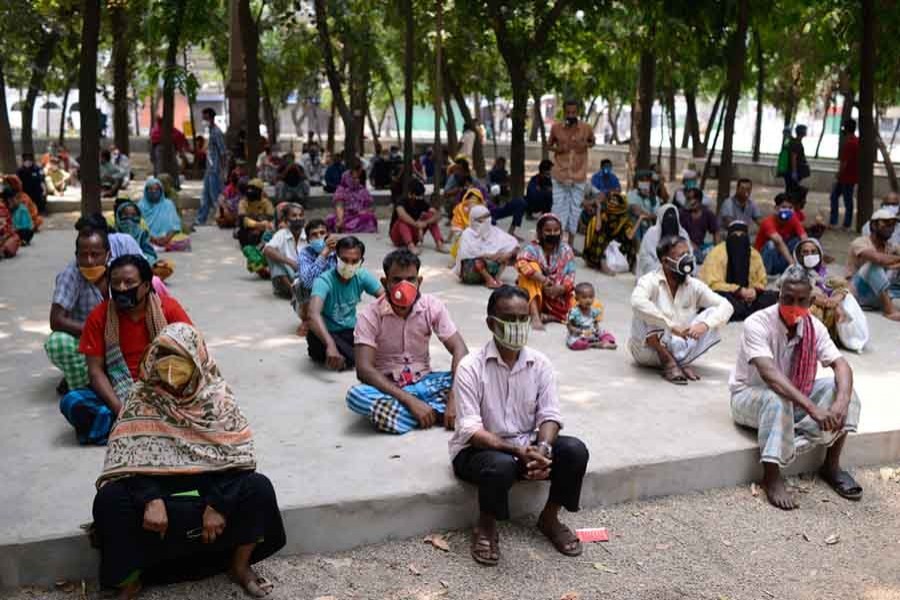The country seems to be in a difficult position at the moment because of a number of reasons, namely, a second wave of the Covid-19 pandemic with a fiercer damage than the first, mixed forecasts for growth, a big number of returnee migrants, nearly half of them without any earning and health professionals advising for a harder lockdown than what is being practised. On the other hand, some experts are of the opinion that alternatives to lockdown must be found out for the economy's sake and understandably due to various forms of pressure, the government has already started thinking about allowing public transport to operate soon. Indeed, it looks ludicrous to see every other mode having a field day excepting buses that can carry working-class people to and from their factories better than any other. One of the largest and least discussed issues has been the huge number of urban to rural migration of mostly informal-sector workers in the pandemic period, thereby not only bringing down wages in the countryside, but also contributing to the already existing joblessness. There has not been any comprehensive study on the subject, but one study estimates the 'new poor' have increased by 14.75 per cent. They inevitably include a good number of returnee migrants.
Against this backdrop, the Prime Minister's opening of aid disbursement for the rural poor last Sunday is a timely action that must be lauded, but the size of the total allocation and the duration of the support might need further examination and expansion in terms of time. Indeed, the government's attitude and steps taken recently under the pandemic have been pro-people. While it tried to work under a combination of recourse to strict adherence to health guidelines and ease for the manufacturing sector to operate, the decision to allow mega-projects to continue undisturbed saved jobs and allowed growth. However, the returnee migrants' issue is one problem that needs special care along with that of the rural poor. A recent BRAC survey found out that most of them returned home after losing jobs or for fear of Covid-19. They along with the 'new poor' pose the greatest threat to the country's march forward, especially in the post-pandemic scenario. Other studies have found the number of the jobless and poor have grown exponentially. Since the government has opened help channels for this group, let it be comprehensive and long-term, not a one-time gesture. Experience has proved that unemployment leads not only to hunger and death, but also to alienation and ultimately to a vicious way of thought process. The age-group from which these people come are the most vulnerable to influences that bring good to nobody. The welfare of this group is therefore no less important than continuation of big projects. A comprehensive social safety net is a crucial need for them.
Covid-19 has held every country of the world back since the start of last year and although Bangladesh continued with its mega projects, the GDP grew less, businesses were decimated, people in millions lost their jobs and a new poor class emerged in the 'new normal'. The perils can only be overcome with serious and well-intentioned steps. Demands for greater coverage under social safety nets are growing. This cannot be overlooked. This would never be a life-time measure. Once the pandemic goes, or is controlled, the energetic Bangladeshis will start contributing to the national economy in the right earnest once again, either at home or abroad. And no doubt brighter days would beckon on the horizon.


